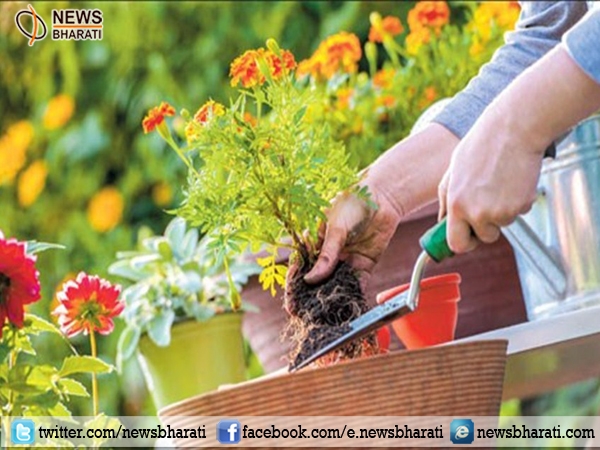Love Gardening? But be vigilant and attentive to avoid future mishaps
Washington, January 21: Gardening is a great way to relax, be one with nature and get your hands dirty. But lurking in that pleasant environment are some nasty bacteria and fungi, with the potential to cause you serious harm. So we need to be vigilant with gardening gloves and other protective wear.

Soils contain all sorts of bacteria and fungi, most of which are beneficial and do helpful things like breaking down organic matter. There are pathogenic bacteria that live on your body amid the useful ones; some microorganisms in soil can cause serious damage when given the opportunity to enter the body. This commonly happens through cuts, scrapes or splinters. Plants, animal manure, and compost are also sources of bacteria and fungi that can cause infections.
Tetanus: Infections occur through contamination of cuts and scrapes caused by things in contact with the soil, such as garden tools or rose thorns. Fortunately, most people have been vaccinated against tetanus, which means even if you are infected; your body is able to fight back against the bacteria to prevent it becoming serious.
Symptoms: Symptoms include weakness, stiffness and cramps, with the toxins released leading to muscular paralysis and difficulty chewing and swallowing
Sepsis: Bacterial infections can lead to sepsis, where the bacteria enter the blood and rapidly grow, causing the body to respond with an inflammatory response that causes septic shock, organ failure, and, if not treated quickly enough, death.
Legionellosis: The bacteria causing Legionnaires' disease, more commonly known to be associated with outbreaks from contaminated air conditioning systems in buildings. The bacteria are usually inhaled, so wearing a dust mask when handling potting soil and dampening the soil to prevent dust are recommended.
Melioidosis: These bacteria live in the soil but end up on the surface and in puddles after rain, entering the body through cuts or grazes, and sometimes through inhalation or drinking groundwater. Infection causes a range of symptoms, such as cough and difficulty breathing, fever or sporadic fever, confusion, headache, and weight loss, with up to 21 days before these develop. Preventative measures include wearing waterproof boots when walking in mud or puddles, gloves when handling muddy items, and, if you have a weakened immune system, avoiding being outdoors during heavy rain.
Rose gardener's disease: A relatively rare infection is the "rose gardener's disease", caused by a fungus that lives in soil and plant matter such as rose bushes and hay. Again, infections through skin cuts are most common, but inhalation can also occur. Skin infection leads to a small bump up to 12 weeks later, which grows bigger and may develop into an open sore.
So enjoy your time in the garden, but wear gloves and shoes, and a dust mask if handling potting soil or compost. And be aware if you do get a cut or scrape then end up with signs of infection, don't delay seeing your doctor, and make sure you let them know what you've been doing.